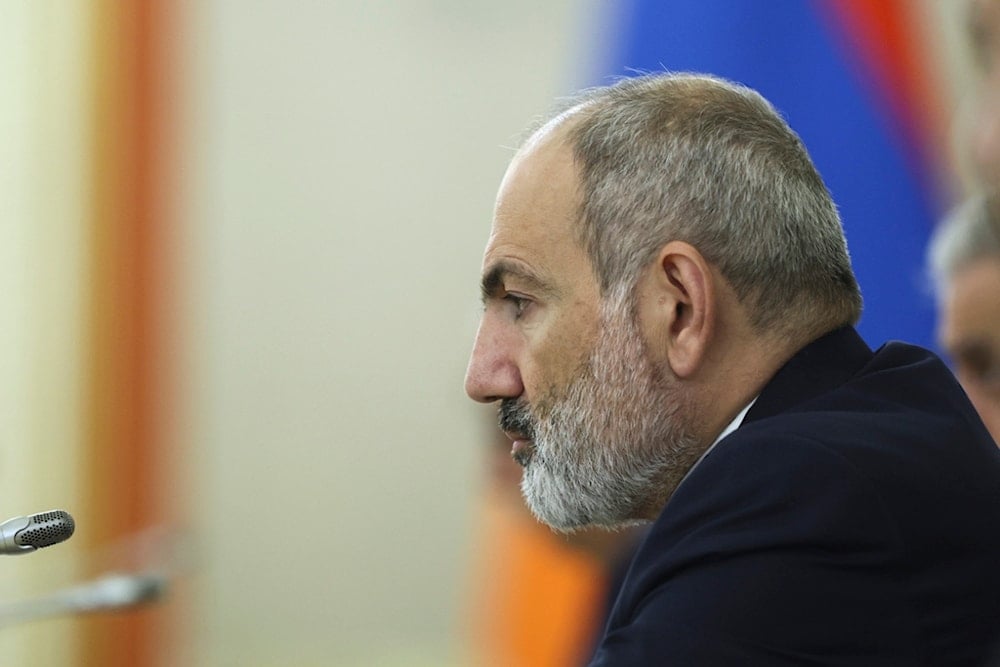Karabakh movement threatens Armenian statehood, Pashinyan says
The prime minister's stance signals a significant shift in Armenia's official narrative, potentially closing the chapter on a long-standing national cause.
-

Armenian Prime Minister Nikol Pashinyan attends a meeting with Russian President Vladimir Putin on the sidelines of the heads of state of the Commonwealth of Independent States (CIS) summit at the Kremlin in Moscow, Russia, Tuesday, Oct. 8, 2024 (Sergei Ilnitsky/Pool Photo via AP)
Armenian Prime Minister Nikol Pashinyan on Thursday firmly rejected the notion of reviving the Karabakh movement, describing it as a serious risk to the country's independence and sovereignty.
"Any attempt to continue the Karabakh movement is destructive. It has been and will be an instrument for preventing the independence and sovereignty of the Republic of Armenia," Pashinyan told lawmakers during a parliamentary session.
The remarks mark a clear continuation of statements he made in late March, when he questioned whether Armenia should pursue the movement that began in 1988 to unite Nagorno-Karabakh with Armenia. At the time, Pashinyan made clear he opposed its continuation. "I clearly expressed that that movement should not continue," he said, explaining that his position stems from "previous assessments that the movement has been used to hinder the development of Armenian statehood."
Armenian Prime Minister #Nikol_Pashinyan says former Karabakh separatists threaten Armenia's sovereignty.
— ⚡️🌎 World News 🌐⚡️ (@ferozwala) April 17, 2025
Calls any revival of the ‘Karabakh movement’ a destructive tool against national independence#Armania pic.twitter.com/jVsWGsOUz7
The Karabakh movement originally emerged during the final years of the Soviet Union, with the ethnic Armenian population of Nagorno-Karabakh seeking to break away from Soviet Azerbaijan and join Armenia. Since then, the dispute has sparked multiple wars between Armenia and Azerbaijan.
The latest and most decisive shift occurred in September 2023, when Azerbaijan regained full control of the region following a rapid military offensive. The operation prompted a mass exodus of nearly all ethnic Armenian residents to Armenia, dramatically altering the political and demographic landscape of Nagorno-Karabakh.
Pashinyan's comments reflect an effort to pivot Armenia's national agenda away from the decades-long territorial struggle and toward reinforcing state institutions and sovereignty. The prime minister's stance signals a significant shift in Armenia's official narrative, potentially closing the chapter on a long-standing national cause.
Read more: Azerbaijan urges Armenia to fulfill key demands for peace agreement

 2 Min Read
2 Min Read








